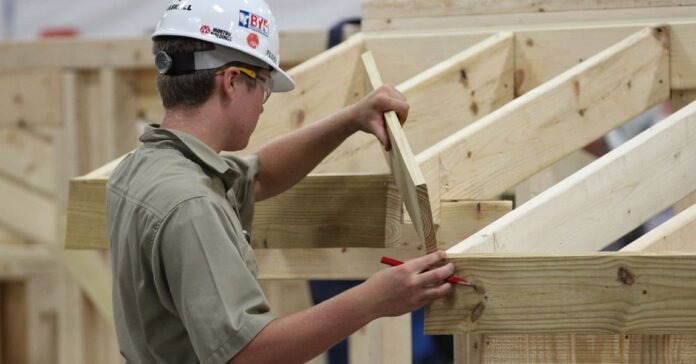Anyone who owns property or perhaps land, may, at some point in their lives, to engage the services of a professional carpenter. It therefore makes good sense to have a local one readily to hand.
What is a Carpenter and What Do They Do?
In a nutshell – carpenters are professional trades people who work with wood. They prepare timber components for construction and install them on roofs, floors, walls, or other timber-framed objects. They construct and install other household additions such as skirting boards. Doors, architraves, stairs, shuttering, wooden window frames, etc.
They use a variety of tools and equipment, such as claw hammers, tape measures, chisels, mallets, handsaws, and power tools.
Types of Carpentry
- Rough Carpentry – This is all about planning, building, and maintaining building structures, such as frames, roofing, and other wooden structures such as fencing and posts.
- Joister – Constructing floor joists.
- Trim Carpentry – Building trims and mouldings for rooms
- Cabinet Construction – Building cabinets for kitchens, bathrooms, laundry rooms, and other furniture
- Roofer – Constructing rafters, beams and trusses relating to outside building construction.
- Framer – Constructing frames for housing and other buildings such as sheds or workshops.
It is a very skilled job which requires a high degree of versatility. With that in mind, it is important to select the right local custom carpenter to meet your potential needs.
The Selection Process
How do you choose a carpenter? The starting point, of course, is to identify local custom carpenters, and select one that meets your needs.
Here are some things to think about:
- What sort of work will you need? If you have specific jobs in mind then look to focus on a professional firm who specialize in that particular area and have the skill sets and the experience to do the work. You may look to engage with a larger firm who may be able to offer a range of different services.
- Materials. Discuss with the trades person the precise options regarding materials as some will be more expensive than others. For example, solid oak flooring will be a lot more expensive than simple laminate flooring.
- Professional Membership. A trades person will sometimes be a member of a recognised trade association or body. If so, that organisation will have standards which the trades person is required to adhere to. So, if you ever run into any difficulties then you will have an avenue of complaint.
- Recommendations. A good and reliable trades person will always have satisfied customers and will be prepared to allow you to speak to them. If not, then that is a big red flag.
- Estimates. Always get a full breakdown of potential costs and ask for alterative, perhaps cheaper, options. The breakdown should cover and precisely specify what materials yourself and then access whether or not it could be less expensive to purchase those independently.
- Finally, you may be asked to pay a deposit to cover materials but do not pay the entire fee upfront.
If you take into account the above, I am sure that you will be able to find the right custom local carpenter.












